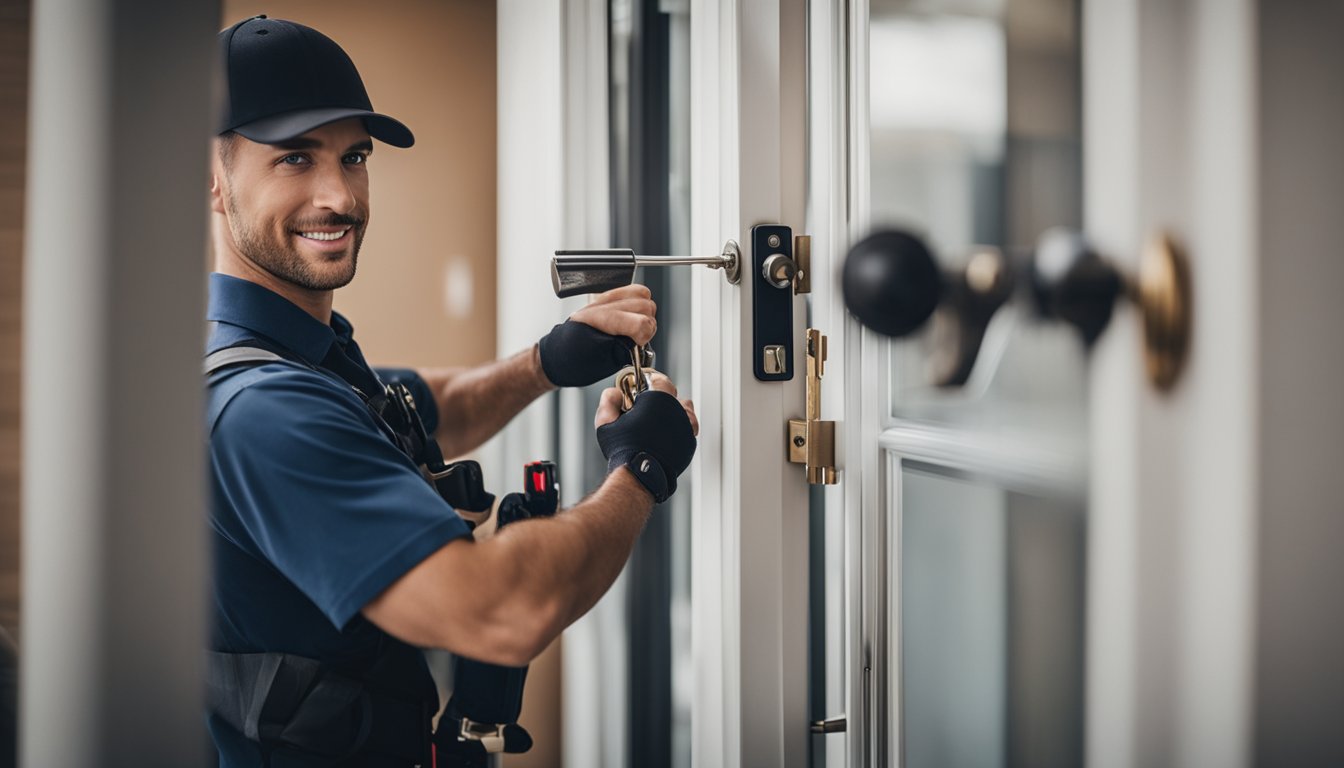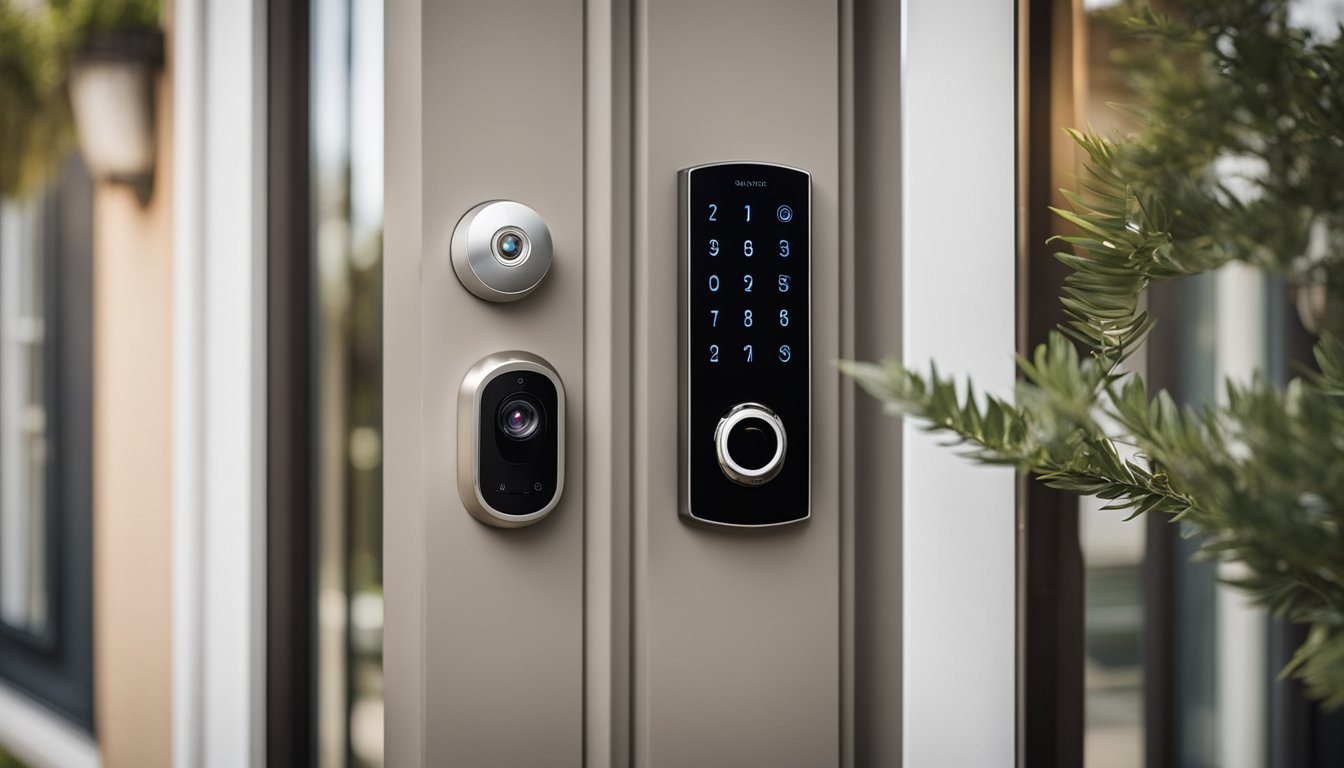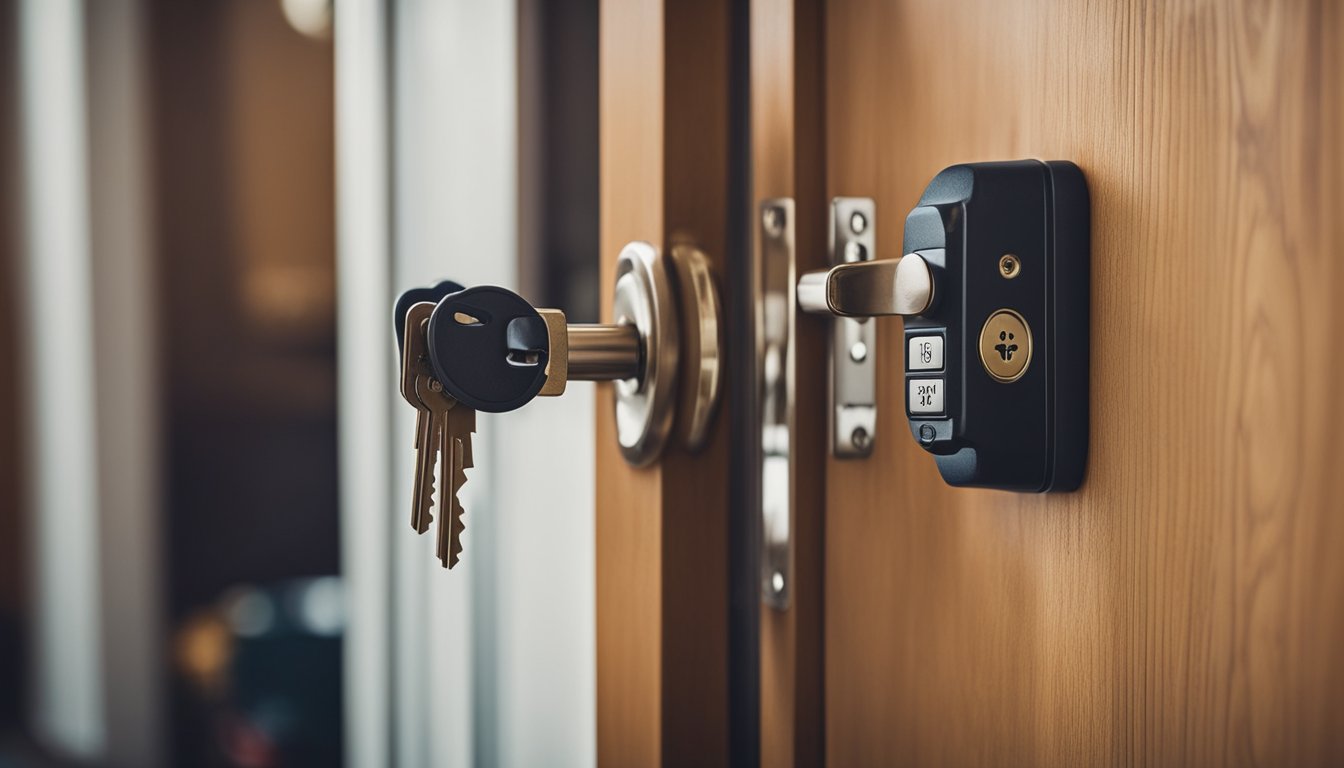Late updated: 28 Jul 2024 15:07
Written by: Elena Prescott
Effective Locksmith Solutions For Rental Properties: Essential Tips and Best Practices
Securing rental properties is paramount for both landlords and tenants. Utilising effective locksmith solutions can significantly enhance the safety of rental properties, mitigating risks associated with security breaches. With advancements in locksmith technologies, options like smart locks and keypad systems are becoming increasingly popular, offering convenience without compromising security.

Traditional locks, while still effective, often fall short of the comprehensive security that modern systems provide. Professional locksmiths are now equipped to install high-tech solutions that not only prevent unauthorised access but also provide landlords with remote control over entry points. These innovations address common concerns and bring peace of mind to property owners and tenants alike.
Our exploration covers proven locksmith practices and the latest in security technology, ensuring that rental properties are well-protected in today’s dynamic environment. By adopting these solutions, landlords can ensure long-term tenant satisfaction and secure their investments effectively.
Key Takeaways
- Effective locksmith solutions enhance rental property security.
- Advanced technologies like smart locks offer superior control and convenience.
- Professional locksmith installation ensures optimal safety.
Securing Rental Properties: Best Practices
Securing rental properties is essential for landlords and property managers to ensure tenant safety and protect their investments. Effective security solutions encompass various types of locks, access control systems, and proper installation and maintenance techniques.
Types of Locks for Enhanced Security
Choosing the right locks is critical for securing both residential and commercial rental properties. Cylinder locks and deadbolts provide reliable security for entry doors. Deadbolts, in particular, are known for their durability and resistance to forced entry.
For advanced security, consider smart locks and electronic locks. These options allow for keyless entry, making it convenient for tenants and reducing the risks associated with lost or duplicated physical keys. High-security locks offer added protection with features like anti-drill and anti-pick mechanisms, ideal for areas requiring elevated security.
Access Control: Master Key Systems and Rekeying
Access control systems are vital for managing multiple tenants and maintaining security. Master key systems allow landlords to access all units with a single key, while tenants have keys limited to their respective units. This streamlines access for maintenance without compromising security.
Rekeying is another crucial practice. When a tenant moves out, it's essential to rekey the locks to prevent former tenants from accessing the property. Rekeying is often more cost-effective than replacing locks and can be quickly done by a professional locksmith.
Installation and Maintenance Strategies
Proper installation of locks is fundamental to their effectiveness. We recommend hiring certified locksmiths to handle lock installations to ensure they are fitted correctly. Poor installation can compromise even the highest quality locks.
Ongoing maintenance is also necessary to extend the lifespan of locks and security systems. Regular checks for wear and tear, lubricating moving parts, and replacing worn components prevent malfunctions. Preventive maintenance, such as periodic security audits, helps identify vulnerabilities and ensures that all security measures remain effective. Routine upkeep not only secures the property but also instils confidence in tenants regarding their safety.
By following these best practices, landlords and property managers can create a secure environment that meets the varied security needs of their rental properties.
Advancements in Locksmith Technologies

Effective locksmith solutions for rental properties must keep pace with the latest technological advancements. Innovations such as keyless and remote entry solutions and the integration of modern security features are becoming increasingly vital for security, convenience, and efficiency.
Keyless and Remote Entry Solutions
Modern rental properties can benefit significantly from keyless entry systems. These systems include smart locks, keypad locks, and electronic locks that do not require traditional keys. Smart locks offer remote access, allowing landlords to grant or revoke access via smartphone apps. This feature is particularly beneficial for managing short-term rentals and scheduling maintenance.
Keypad locks provide a convenient, budget-friendly alternative. Tenants can use a PIN code to enter their units, eliminating the need to carry physical keys. Remote entry solutions can also enhance security, as landlords can monitor door activity and receive alerts for unauthorised access attempts. This increased control helps maintain a higher level of security and convenience.
Integrating Modern Security Features
Incorporating modern security features into locksmith solutions can drastically improve the safety and appeal of rental properties. Smart locks with built-in alarms can deter break-ins by notifying property owners of suspicious activity. Features such as biometric access add a layer of security by using fingerprints or facial recognition.
Besides physical security measures, integrating smart home systems enables comprehensive monitoring. Cameras, motion detectors, and window sensors can be linked to the property’s security system, ensuring a coordinated and prompt response to potential threats. This integration allows us to offer a security system that meets contemporary market demands while remaining efficient and easy to manage.
By embracing these advancements, we can provide a seamless and secure living experience for tenants while maintaining the efficiency and control that property owners require.
Frequently Asked Questions

Navigating the responsibilities and rights of landlords and tenants concerning lock maintenance and key management in UK rental properties can be complex. Here's a clear and concise guide to some of the most common questions.
What are landlord's obligations regarding door lock maintenance in UK rental properties?
In the UK, landlords must ensure that all locks are in good working order at the start of a tenancy. Regular checks are necessary to maintain security. If a lock becomes faulty during the tenancy, it is typically the landlord's responsibility to repair or replace it promptly.
Is a tenant allowed to duplicate keys for their rental property in the UK?
Tenants in the UK generally have the right to duplicate keys, especially if they need additional sets for family members or housemates. However, it is advisable for tenants to inform their landlord about any duplicates made to avoid misunderstandings and ensure proper key management.
In the UK, how many sets of keys is a landlord required to provide to the tenant?
Landlords in the UK are typically required to provide at least one set of keys per tenant listed on the lease. This ensures each tenant has independent access to the property. It's common practice to provide two sets of keys for a single tenancy as a standard.
Can a tenant be held responsible for a key broken inside a lock at a rental property?
If a tenant breaks a key inside a lock due to misuse or negligence, they can be held responsible for the cost of repairs. However, if the breakage is due to normal wear and tear or a faulty key, the landlord usually covers the repair costs.
Are tenants permitted to change locks on their rented premises in the UK?
Tenants may change locks for their own security, but they should seek permission from the landlord first. If permission is granted, tenants must provide the landlord with a set of keys. This ensures the landlord can still access the property for maintenance and emergencies.
Who is responsible for the cost of repairing a broken lock at a rental property?
Responsibility for repairing a broken lock typically falls on the landlord, especially if the damage results from wear and tear or a fault in the lock. If the tenant causes the damage, for instance by misuse, they may be required to bear the cost of repair.
